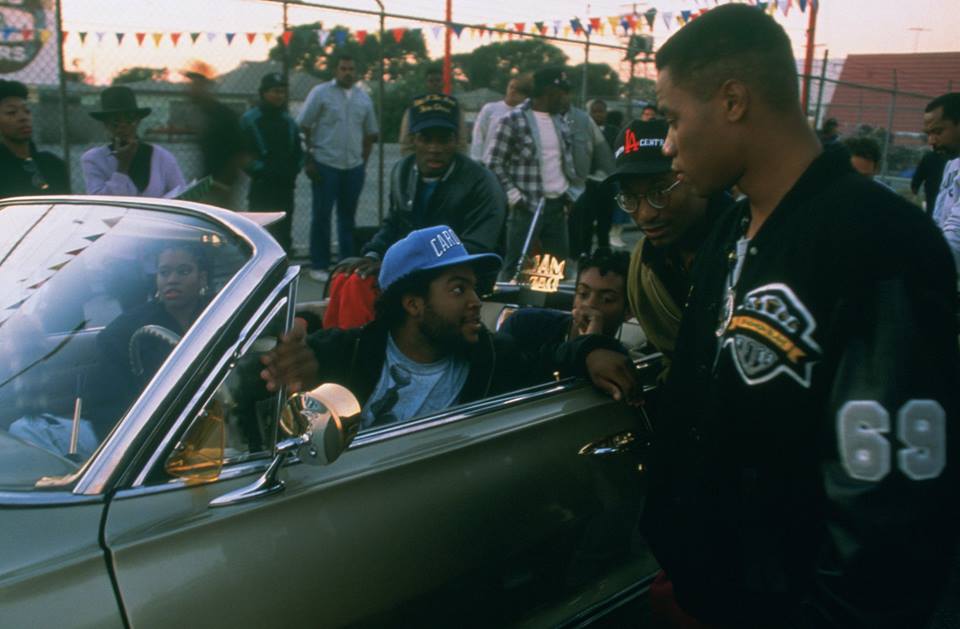HOLLYWOOD—The passing of Hollywood writer, producer and director John Singleton this week thru me for an absolute loop. It just seemed to come out of nowhere and this guy was so young. He was only 51, and died from complications after he suffered a stroke. His family made a plea for many in the African-American community who suffer from hypertension to educate themselves and to take better care of their health to prevent such tragedies from taking place.
The thing that is so baffling is just about a week ago I was thinking about Singleton and his iconic 1991 film “Boyz n the Hood” and how it took a stark look at life in the inner city, particularly for African-Americans. It was something never seen before and Singleton’s care with the script and camera and just the plot was piercing to the soul in my opinion. It was especially haunting as an African-American male.
Singleton has directed a bevy of films in his career including “Rosewood,” “Four Brothers,” “Baby Boy,” “2 Fast and 2 Furious” and “Poetic Justice” to name a few. There was something special about his first feature film not only because it made history with Singleton becoming the first African-American nominated for Best Director, but we saw something on screen that hadn’t been seen before: a harsh glimpse of reality. It’s important to note that Singleton made history becoming the youngest nominee in the Best Director category.
This is a movie that presents a harsh reality for many who live in the inner city, especially Black males. You have two life trajectories: jail or death and to see a movie navigate between those dichotomies and to show the viewer there are ways to escape that dark path was phenomenal. There is sensational acting from Morris Chestnut, Ice Cube and Cuba Gooding Jr. All friends who have taken different paths in life, looking at the pros and cons of their actions with Ricky and Doughboy navigating their life without a father, whereas Trey has his father as a constant presence in his life.
It just echoes in an odd way, growing up with both parents in the household makes a major difference in the child’s development, especially boys. Trey learns about the importance of being responsible and what it takes to be a MAN. That is the one thing I love so much about this movie. It teaches a boy how to be a man, versus a boy automatically assuming it based on gender specifics and biology.
I will never forget that classic line from Laurence Fishburne as he talked to his son about the birds and bees, and how any guy can make a baby, but it takes a man to be a father. Singleton’s ability to utilize dialogue that just pierces through the heart and the brain is what makes this movie not only a classic, but something that can be watched over and over again and not once will you get tired watching it.
We see Trey develop as he moves from living with his mother, to living with his father. He feels the pressure to fit in with his pals by having sex, we see the dark reality of how drugs impact the lives of young men, not to mention the issue of racial profiling involving police. Note: this movie was made in the 90s, and we still have these same problems today. Have they gotten better, of course, but we still have a lot of work to do. I mean, hearing Laurence Fishburne’s character discuss the logic of a liquor store being on every corner in the ghetto, yet if you go into the suburbs it’s like looking for a needle in a haystack. Why is that? Think about that for a second.
“Boyz n the Hood” is a flick that should be shown more in cinema courses, and it likely is the case. I didn’t see it during any of my film courses as an undergraduate, but what Singleton does with the narrative; the development of characters and bringing in a level of realism especially for African-Americans is something that isn’t always seen on the big screen. I remember my screenwriting professor telling me that the horror genre has a gap for representing the African-American element and that I had a gift with my storytelling. However, in the back of my mind I kept asking myself, “How can I tell such a story and remain true to the African-American culture without the flick coming across silly?” As a filmmaker you have to be willing to tell stories that reflect your upbringing, but also not expect people to tell the stories that you want to see.
That is the one thing I appreciated most about John Singleton: he knew he had to tell his story about growing up in South Central and the harsh realities of violence, drugs, gangs, parenting and so much more in the inner city for African-Americans. A lot of people don’t see these things, so to have a movie present this tale in such a gut-punch and not to be apologetic for it makes Singleton’s film not just iconic, not just classic, but a film that is powerful beyond any other flick I have ever seen showcasing my culture.
John Singleton you were a great auteur for up and coming filmmakers, and you will be greatly missed. You gave us a ton of iconic movies and I’m certain there were many more stories you wanted to tell, but I will say, you’ve inspired me in ways that you have no idea and I plan to tell my stories and not be afraid to take a risk.






